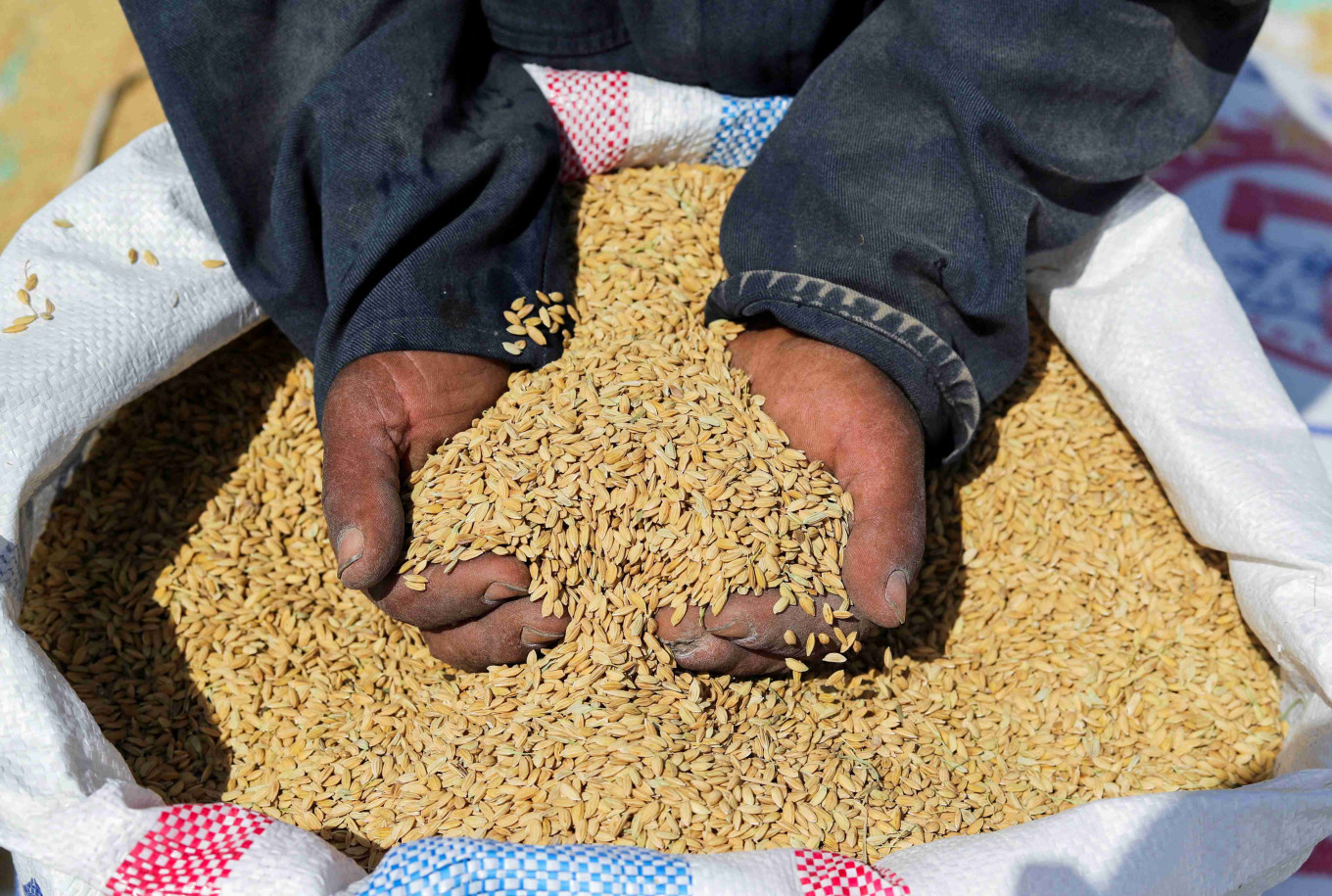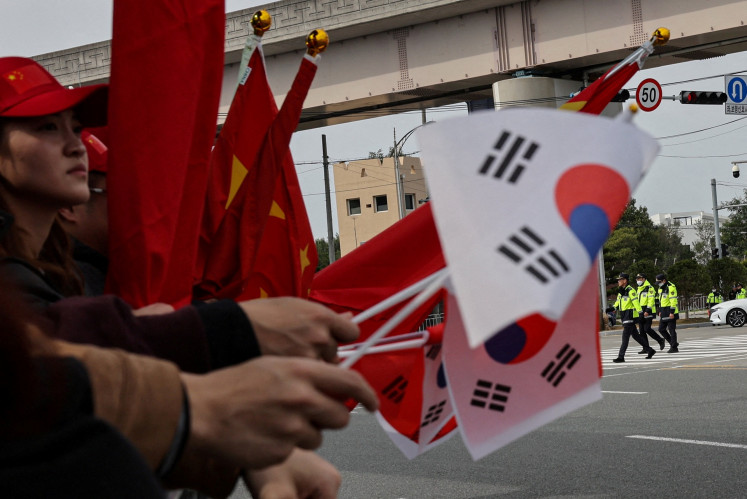Popular Reads
Top Results
Can't find what you're looking for?
View all search resultsPopular Reads
Top Results
Can't find what you're looking for?
View all search resultsNorth Africa backslides toward swirling debt troubles
Change text size
Gift Premium Articles
to Anyone
T
unisia and Egypt are edging closer to major debt crises that could suck in a volatile North Africa region and pose tough choices to wealthy Gulf Arab neighbours, investors and analysts warn.
The countries are already being challenged by shortages of essential goods and financial market dysfunction and in Tunisia's case, a political crisis caused by President Kais Saied's consolidation of power and crackdown on opponents.
Egypt, as North Africa's largest economy and most populous nation, has long been assumed to be too big to be allowed to fail, but Tunisia too carries outsized significance as the birthplace, and supposed sole success story, of the Arab Spring.
Tunisian hopes for a long-awaited International Monetary Fund (IMF) support package are still flickering, although concerns remain whether it would stick to a programme given the fractured politics.
President Saied has criticised the IMF, saying Tunisia will not bow to its "diktats" on food and energy subsidy cuts and a reduction in the public wage bill, warning it could fuel renewed social upheaval.
"Given the current politics, you have to question whether an IMF programme would even survive a first or second review," said Matt Vogel, at emerging and frontier market asset manager FIM Partners.
Without sustained IMF help, though, the country faces a full-blown balance of payments crisis.
One of the highest public sector wage bills in the world means its fiscal deficit will remain around 5 percent of GDP, JPMorgan estimates, while Morgan Stanley warns FX reserves won't even cover two months of basic imports this time next year at their current rate of attrition.
Making debt payments could become almost impossible. Most of the country's borrowings are domestic, but it has a 500 million euro foreign loan repayment in October followed by another in February next year.
"There is always a risk that the IMF programme is delayed for such a long time that when it comes it is too little, too late" said Matt Robinson, a senior sovereign analyst at credit rating agency Moody's.
On the risk of a default? "That could be an eventual outcome. That is what our low rating is pointing to".
Egypt
Egypt's finances also look stretched despite it securing a $3 billion IMF rescue plan in December.
Its debt-to-GDP ratio is fast approaching 100 percent and three major currency devaluations totalling 50 percent in little over a year means the interest payments on its debt alone - a large slab of which is borrowed in dollars, euros or yen - will soak up over half of the government's revenues next year according to Fitch.
The rating agency, which downgraded Egypt's credit rating again on Friday, highlights that only default-stricken Sri Lanka would need to pay more. And like that example, a lack of dollars in Cairo's local currency markets is biting the economy.
The Egyptian pound now changes hands at more than40 to the dollar on the streets, nearly 25 percent below the currency's official rate despite the repeated devaluations and interest rates jumping to 18.25 percent.
Many economists believe they will have to go much higher still, all of which will feed a problematic economic narrative for next year's presidential elections.
"For the population, up until the pandemic, there had been a marginal improvement in living standards," said David Butter, an Associate Fellow on London-based think tank Chatham House's Middle East and North Africa Programme.
"But since late 2021, we have gone back into this cycle of instability on the exchange rate market and soaring inflation".
President Abdel Fattah al-Sisi's government has rubbished talk of a default and to help plug the funding holes is targetting $2 billion worth of state-owned asset sales by the end of June.
Whether that's achieved will be crucial, both for the IMF which expects sell offs to cover roughly half of Egypt's $17 billion funding gap over the next four years, and for Gulf allies Saudi Arabia, the United Arab Emirates and Qatar that have traditionally bailed the country out.
They are currently taking a tougher stance which analysts put down to neighbourly politics and differences over valuations of the assets to be sold, although there are still positive noises being made.
UAE Economy Minister Abdullah bin Touq Al Marri told Reuters on a recent trip to London that, "the UAE and Egypt will always stand together" adding that infrastructure funding showed the relationship between the two was "very deep" and "very dynamic".
Not immaterial
For regular asset managers, though, there has been a painful 20 percent slump in Egypt's near $30 billion worth of international bonds this year.
Suez Canal and tourism revenues may be improving, but Cairo has a combined $5.8 billion worth of 'principal' and 'coupon' payments on those bonds next year which also carry a 2 percent 'weight' in the world's most closely-followed emerging market debt index.
Carl Ross, a veteran of EM crises at fund manager GMO, said the wealthy Gulf states would have to balance the cost of supporting Egypt against the risk of regional instability if a country with a 110 million population went bust.
"It would not be immaterial if it were to default" Ross said about the impact on global money managers.
"These very wealthy Gulf countries have generally enhanced financial stability in the region," via their support he added. "No one knows how long this will persist and under what conditions."










